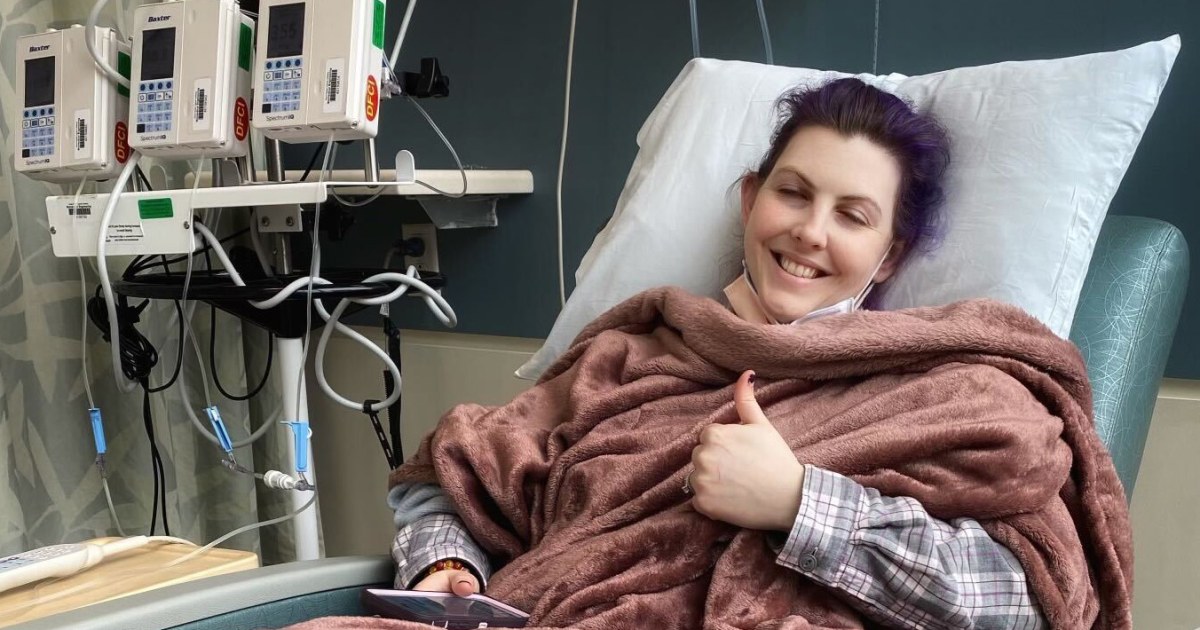Colorectal cancer is the deadliest among men under 50 years of age, and the second among women of the same age group, behind breast cancer.
The incidence of colon cancer has been increasing at least during the last two decades until it has become the fourth cause of death from this disease, both in men and women under 50 years of age.
Among men and women of all ages, lung cancer remains the leading cause of cancer death. Prostate cancer is second in men, and breast cancer in women.
Colorectal cancer is the third cause of death in both sexes.
Although the total number of cancer deaths continues to decline in the United States, the American Cancer Society reported for the first time that colon and rectal cancers have become the leading causes of death from this disease in young adults. The finding was published this Wednesday in the scientific journal CA: A Cancer Journal for Clinicians.
“Increasingly younger” patients
Traditionally, cancer has hit older people hardest, although the percentage of new cases detected in people 65 years of age or older has fallen from 61% in 1995 to 58%.
The decline, attributed primarily to declines in prostate and smoking-related cancers, has occurred even though the proportion of people in that age group has grown from 13% to 17% in the general population.
In contrast, new diagnoses among adults ages 50 to 64 have increased since 1995, from 25% to 30%.
Rates of breast and endometrial cancer, as well as mouth and throat disease, have been increasing. The report does not break down diagnoses by age.
The results reflect what oncologists have been witnessing for years.
“We have been observing for a couple of decades that the patients who come to our office They seem to be getting younger and younger” said Dr. Kimmie Ng, director of the Young Onset Colorectal Cancer Center at Dana-Farber Cancer Institute in Boston. “What this report confirms for us is that these trends are real.” Ng was not involved in the new report.
The “most difficult to treat” cancer
Dr. William Dahut, chief scientific officer of the American Cancer Society, said younger people tend to be diagnosed in later stages, when the cancer is more aggressive.
“So it’s not just having colorectal cancer, but it is also the most difficult to treat; that is the reason why we are seeing these changes in mortality,” adds Dahut.
The diagnosis of late-stage colorectal cancer came as a shock to Sierra Fuller, a 33-year-old woman living in Acton, Massachusetts, just outside of Boston.
It was around Christmas 2021 when Fuller noticed blood in his stool. With no family history of colon cancer, he thought it was most likely a pesky hemorrhoid.
Weeks later, the blood stains worsened and she began to have abdominal pain.
“It was a month from when I had symptoms until I sought help, and I knew what was happening to me,” Fuller said. Tests revealed that she had stage 3b colorectal cancer. According to the American Cancer Society, this means that it has begun to spread through the colon and possibly to nearby lymph nodes, but no further.
The diagnosis was a hard blow for Fuller and her husband, who had just begun to consider having a child. They decided to freeze embryos before Fuller’s treatment, which included radiotherapy, chemotherapy and surgery.
His case is an example of how cancer is hitting young patients particularly hard.
“People under 65 are less likely to have health insurance and more likely to combine family and professional life,” Dahut said in a press release announcing the new report.

“In addition, men and women diagnosed younger have a longer life expectancy and may suffer treatment-related side effects, such as second cancers,” he added.
Just over a year later, Fuller is cancer-free, but must undergo regular scans and blood tests. He assures that he feels fine, but that “You will always have that worry” that the cancer will come back.
“If I have to go through this again, no matter what, I will cross that bridge,” Fuller said.
What is known about the causes
Doctors don’t know why cancer, especially colorectal cancer, is becoming more common in young adults. Some hypothesize that rising rates of obesity, sedentary behavior, and unhealthy diets could be playing a role.
“But honestly, the patients we see in the clinic don’t tend to fit that profile,” said Dr. Kimmie Ng, director of the Young Onset Colorectal Cancer Center at Dana-Farber Cancer Institute in Boston. “Many of them are triathletes and marathon runners. That is, super healthy people.”
Ng suspects that something in the environment may be behind the increase.
“What we think may be happening is that whatever combination of environmental factors is responsible for this, it is likely changing our microbiomes or our immune systems, leading us to be more susceptible to these cancers at an older age.” early,” Ng said.
Precautions that can be taken
It is generally recommended to undergo a colonoscopy starting at age 45. People with a family history of the disease may need to start testing earlier.
A person whose parent was diagnosed with colon cancer at age 50, for example, would need to start getting tested at age 40, Dahut explained.
However, only about a third of people diagnosed with colon cancer have any type of family history or predisposition to the disease.
Maintain a healthy body weight and minimize red meat in the diet can help minimize the risk, adds Ng.
Signs that could indicate a problem include blood in the stool, abdominal pain, unintentional weight loss, and changes in bowel habits.
“If it gets worse or doesn’t go away, that’s when you need to start paying attention and talking to your primary care doctor about what’s going on,” he explained.

